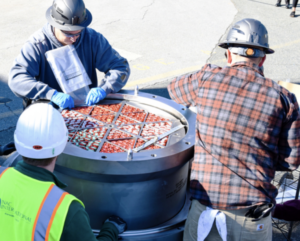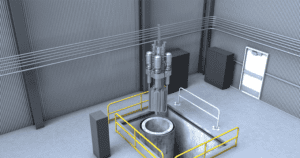The Illinois House on Tuesday approved plans to build Tenaska’s $3.5 billion proposed integrated gasification combined cycle (IGCC) plant with carbon capture and storage (CCS) in Taylorville, Ill. The state Senate is expected to vote on the 602-MW plant later today.
The bill authorizing the new plant had fallen short two votes earlier on Tuesday, and minority legislators expressed concerns about the high costs associated with power produced by IGCC plants. But with a call for another vote, the bill received more than enough votes to pass, the State Journal Register reported.
The Illinois Legislature is involved in the plant’s approval process because ratepayers would pay for the plant even though Illinois is a deregulated state, Reuters reported. As part of the legislation approved on Tuesday, Illinois utilities Commonwealth Edison and Ameren will have to buy power from the IGCC plant.
The Legislature in 2008 passed the Illinois Clean Coal Portfolio Standard, requiring power suppliers to purchase 5% of their electricity from coal-fueled plants that capture at least half of the carbon dioxide. The law capped the rate impact from the Taylorville project at 2% for residential customers.
Tuesday’s approval came despite the Illinois Commerce Commission’s (ICC’s) finding that the plant would prove too costly “with uncertain future benefits.” In September, the ICC reported that the cost associated with power generated by the Taylorville project was “substantially higher” than that associated with other types of generation facilities. “The [Taylorville Energy Center’s] expected base case electricity cost of $212.73 per MWh (or over 21 cents per kWh) would cost significantly more than wind ($88.80 to $121.97), nuclear ($101.45 to $128.03), traditional coal ($141.08 to $153.03), or combined cycle combustion turbine ($154.05 to $160.78) facilities,” the report said.
The project’s developers have already secured a federal $417 million tax credit from stimulus funds and a $2.58 billion federal loan guarantee to help finance the project. The legislation is still critical, Tenaska says.
Sources: State Journal Register, ICC, Reuters, POWERnews







